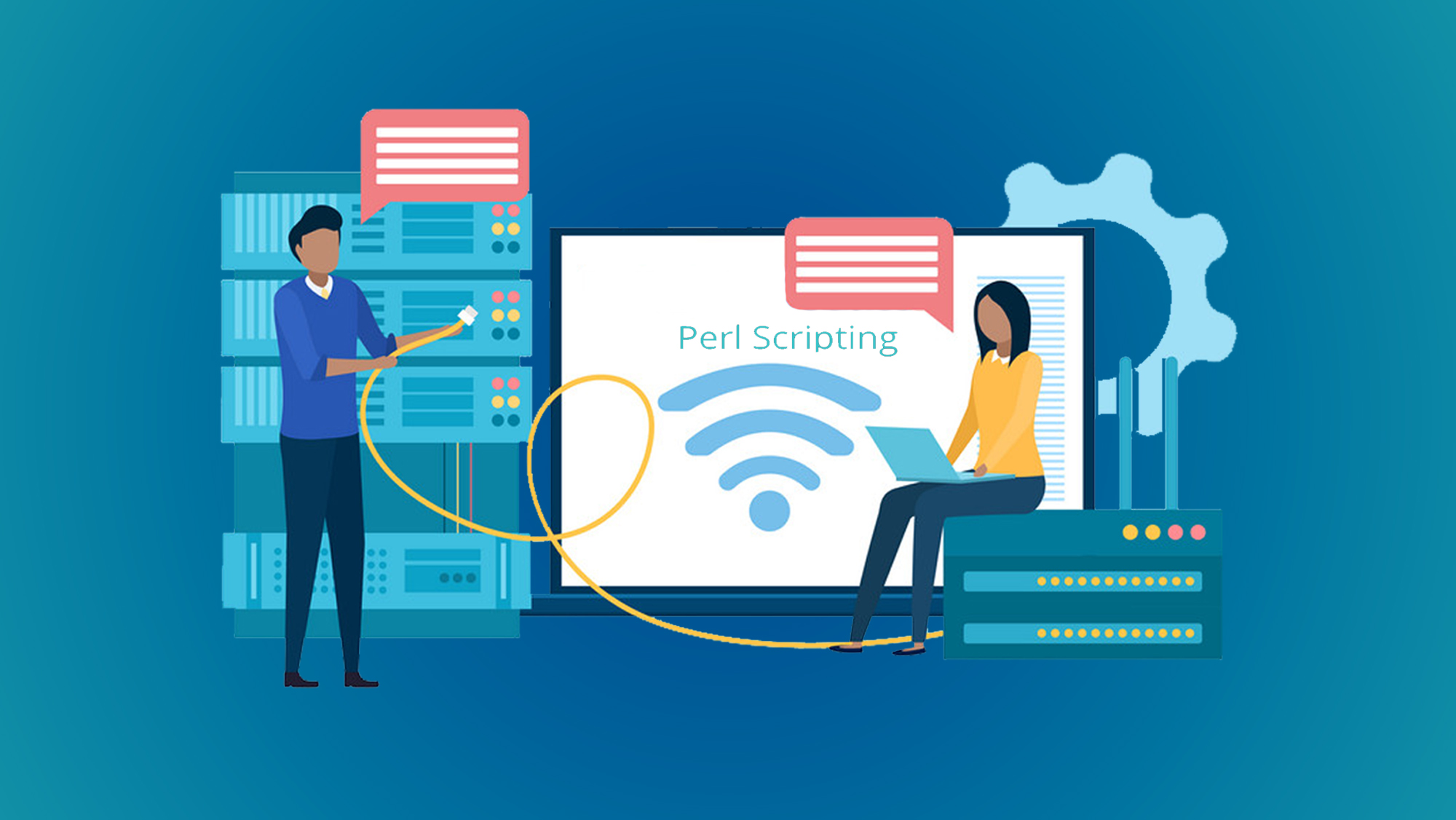Everything You Need To Know About TCL Scripting Training
Introduction:
TCL (Tool Command Language) is a powerful scripting language commonly used in various domains, including network administration, software testing, and embedded systems development. If you're interested in enhancing your skills or exploring new career opportunities, TCL scripting training can be a valuable investment. In this blog post, we will delve into the details of TCL scripting training, its benefits, and what you can expect from such a program.
What is TCL Scripting?
Why Learn TCL Scripting?
TCL Scripting Training Options:
Topics Covered in TCL Scripting Training
Practical Applications of TCL Scripting:
What is TCL Scripting?
TCL Scripting is a dynamic, interpreted scripting language that provides a straightforward syntax for writing scripts. It is known for its simplicity and flexibility, making it a popular choice for automating tasks, building applications, and controlling devices. TCL is often used in conjunction with other technologies such as Expect (used for automating interactive applications) and Tk (a graphical user interface toolkit).
Why Learn TCL Scripting?
There are several compelling reasons why learning TCL scripting can be beneficial. Here are some key reasons:
- Automation: TCL scripting is renowned for its ability to automate repetitive tasks. By learning TCL, you can create scripts that streamline workflows, saving time and effort. Whether it's automating file processing, system configuration, or network management tasks, TCL allows you to write efficient scripts that handle complex operations with ease.
- Device Control: TCL is widely used in networking devices, embedded systems, and hardware control applications. With TCL scripting skills, you can programmatically control and configure devices such as routers, switches, and embedded systems. This capability is invaluable for network administrators, system developers, and professionals working in the Internet of Things (IoT) domain.

Read More: Tcl scripting 101 : Essential Skills for Effective Automation |
- Testing and Debugging: TCL is a popular choice for software testing and debugging due to its simplicity and flexibility. By learning TCL scripting, you gain the ability to write test scripts, automate testing processes, and perform efficient debugging. TCL's robust error handling features and debugging capabilities make it an excellent choice for identifying and resolving issues in software applications.
- Versatility: TCL is a versatile scripting language that extends beyond automation and device control. It offers a wide range of functionalities, including file manipulation, string processing, regular expressions, and more. This versatility makes TCL a valuable tool for various applications, such as data processing, log analysis, and system administration.
- Integration with Other Technologies: TCL seamlessly integrates with other technologies, enhancing its usefulness. For instance, the Expect package combines TCL with specialized extensions for automating interactive applications. Tk, a graphical user interface toolkit, allows you to create user-friendly interfaces using TCL. Learning TCL opens up opportunities to leverage these integrations and build powerful solutions.
- Job Opportunities: Proficiency in TCL scripting can significantly enhance your career prospects. Many industries, including networking, telecommunications, software development, and automation, value TCL skills. By adding TCL scripting to your skill set, you can stand out from the competition and explore a range of job opportunities in these domains.
- Simplicity and Ease of Learning: TCL has a straightforward syntax and easy-to-understand command structure, making it relatively easy to learn for beginners. Its simplicity doesn't compromise its power, as TCL offers advanced features for more complex tasks. Whether you have prior programming experience or are new to scripting languages, TCL can be quickly grasped and put into practice.
Topics Covered in TCL Scripting Training
Topics covered in TCL scripting training may vary depending on the specific training program or course. However, here are some common topics that are typically covered in TCL scripting training:
- Introduction to TCL scripting
- Control structures
- Procedures and functions
- File handling
- Regular expressions
- Error handling
- Advanced TCL concepts
- Interfacing with other languages
- GUI development with TCL/TK
- Automation and scripting best practices
- TCL extensions and libraries
- Real-world applications
- Debugging and troubleshooting
- Scripting security
- Case studies and hands-on projects
TCL Scripting Training Options:
When it comes to TCL scripting training, there are several options available to suit different learning preferences and goals. Here are some common training options:
- Online Courses: Many online platforms offer TCL scripting courses taught by industry experts. These courses provide comprehensive lessons, interactive exercises, and quizzes to enhance your TCL scripting skills at your own pace.
- Instructor-Led Training: If you prefer a more structured approach, instructor-led training is a great option. These training programs are typically conducted in a classroom or virtual classroom setting and provide hands-on exercises, real-world examples, and direct interaction with the instructor.
- Tutorials and Documentation: TCL scripting has extensive documentation available, including tutorials, guides, and reference materials. These resources can be valuable for self-paced learning, allowing you to explore TCL concepts and practice scripting techniques at your own convenience.

Read More: Advanced TCL Training: Enhance Efficiency with Expert Scripting Skills |
- Workshops and Conferences: Attending workshops or conferences focused on TCL scripting can provide valuable insights and hands-on experience. These events often feature expert speakers, live demonstrations, and networking opportunities with fellow TCL enthusiasts.
- On-The-Job Training: If you're already working on a project that involves TCL scripting, on-the-job training can be an effective option. Collaborating with experienced TCL scripters or mentors within your organization can help you learn and improve your TCL scripting skills while working on real-world tasks.
Practical Applications of TCL Scripting:
TCL scripting has various practical applications across different domains. Some of the common practical applications of TCL scripting include:
- Automation and Scripting: TCL scripting is widely used for automating repetitive tasks, such as system administration, network configuration, and software deployment. By writing TCL scripts, you can streamline workflows, reduce manual efforts, and improve overall efficiency.
- Embedded Systems: TCL scripting is often utilized in embedded systems development. It provides a lightweight and flexible scripting language for controlling and managing embedded devices, including routers, switches, and IoT devices.
- Network Management: TCL scripting is employed in network management tasks, such as network monitoring, device configuration, and traffic analysis. With TCL scripts, you can automate network operations, generate reports, and perform custom actions based on network events.
- Testing and Simulation: TCL scripting is widely used in software testing and simulation. Test frameworks like Tcltest provide a structured approach to writing test cases, executing them, and analyzing the results. TCL scripting also facilitates simulation and modeling tasks in various domains.
- Custom Application Development: TCL is often used to develop custom applications and extensions. It provides a high-level scripting language that can be embedded within larger applications, enabling users to extend functionality, customize behavior, and create specialized tools.
- Tool Development: TCL scripting is utilized in the development of various tools and utilities. These tools can range from text processing utilities to graphical user interface (GUI) development frameworks. TCL's ease of use and extensibility make it a popular choice for tool development.
- Web Development: TCL scripting can be integrated with web technologies, such as CGI (Common Gateway Interface) and web server scripting, to create dynamic web applications. TCL's integration capabilities with other languages and databases make it suitable for web development tasks.
Conclusion:
TCL scripting training equips you with valuable skills to automate tasks, control devices, and streamline operations across various domains. Whether you are a network administrator, software tester, or developer, TCL scripting can enhance your productivity and open doors to exciting career opportunities. By enrolling in TCL scripting courses or exploring self-study resources, you can embark on a journey to master this versatile scripting language and leverage its benefits in your professional endeavors. Start your TCL scripting training today and unlock a world of possibilities.
You May Also Like
These Related Stories

Advanced TCL Training: Enhance Efficiency with Expert Scripting Skills

Everything You Need to Know About TCC Scripting Training



No Comments Yet
Let us know what you think